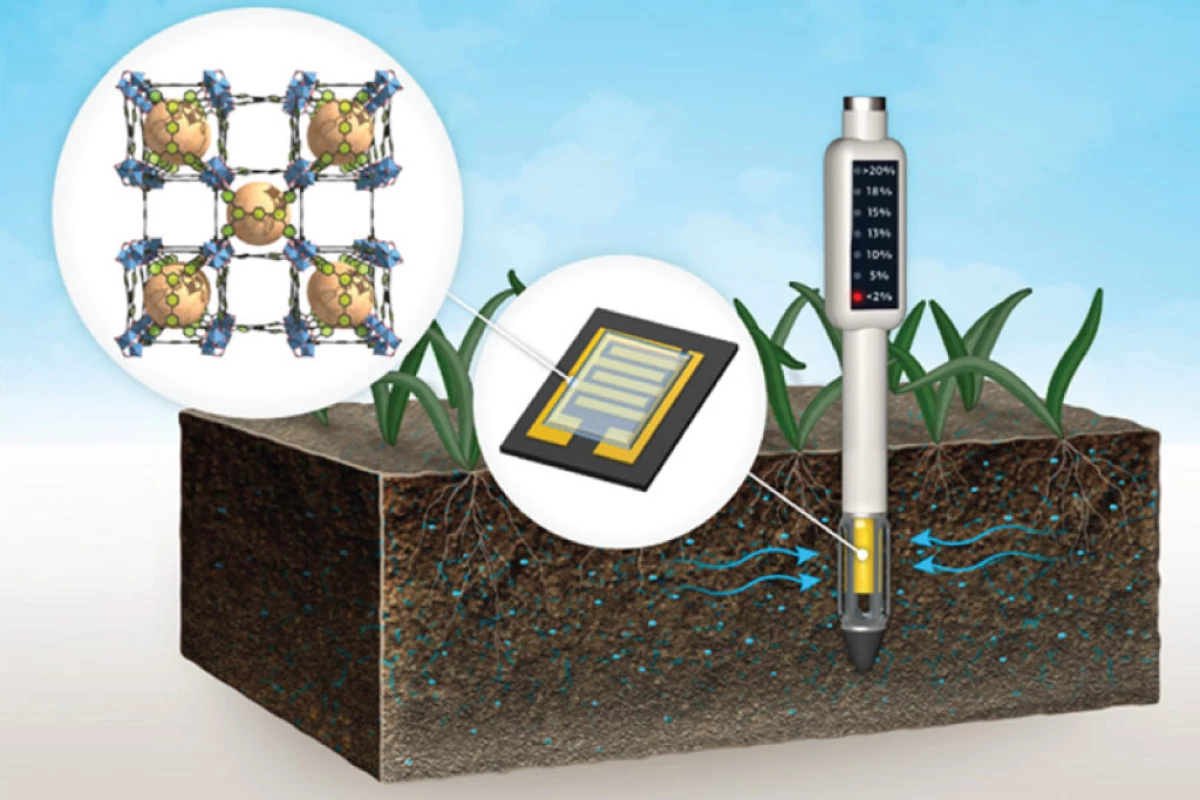Soil moisture sensors can help farmers save water, by letting them know when their crops actually need to be watered. An experimental new sensor could be particularly helpful, as it incorporates a special material which makes it highly sensitive to moisture.
Developed by professors Mohamed Eddaoudi and Khaled Salama at Saudi Arabia's King Abdullah University of Science and Technology (KAUST), the prototype device is designed to be stuck into the soil like a tent peg.
The moisture-sensing element on its bottom end is covered in a thin film of a synthetic material known as a metal-organic framework (MOF). Previously utilized in applications such as water filters, carbon capture media and vaccines, MOFs have an open cage-like internal microstructure which allows them to take up certain types of molecules.
While the KAUST team tried out various MOFs, it was found that one in particular – called Cr-soc-MOF-1 – had a particular affinity for water, capturing twice its own weight in the liquid.
The scientists coated an inexpensive electrode microsensor with a thin film of the material, then inserted that sensor into moist soil. As the film proceeded to draw water in from the soil, that water displaced some of the air within the MOF, changing its electrical capacitance proportionally. That change could be detected by the microsensor, thus providing an electronic reading on the soil's moisture levels.
The setup was found to work in both loamy and clayey soil samples, exhibiting a response time of about eight minutes in the latter. Plans now call for actual in-field tests of the technology to be conducted, utilizing a more portable version of the device.
"We anticipate that MOF-based soil-moisture sensors will advance the next-generation soil-moisture sensor technology, offering automated and precise irrigation systems," said Prof. Salama.
A paper on the research was recently published in the journal ACS Applied Materials & Interfaces.
Source: KAUST




